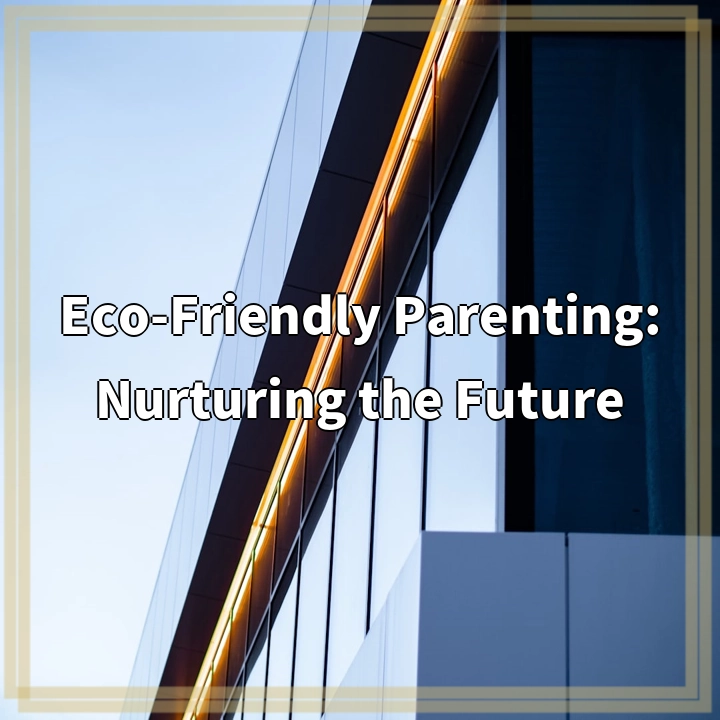Physical Address
304 North Cardinal St.
Dorchester Center, MA 02124
Physical Address
304 North Cardinal St.
Dorchester Center, MA 02124

Eco-friendly parenting, also known as sustainable parenting, is a conscious approach to raising children that prioritizes environmentally conscious practices and promotes a sustainable lifestyle for both parents and children. By making choices that minimize our ecological footprint and contribute to the well-being of the planet, eco-friendly parents play a crucial role in creating a sustainable future for their children.
Eco-friendly parenting comes with its own set of challenges, but there are solutions that can help address these issues:
One of the major challenges of eco-friendly parenting is minimizing plastic waste. Baby products such as bottles and toys are often made from plastic, contributing to the growing issue of plastic pollution. To tackle this problem, eco-friendly parents can opt for sustainable alternatives such as glass or stainless steel baby bottles instead of plastic ones. Additionally, choosing plastic-free toys made from natural materials like wood or organic fabric can further reduce plastic waste.
Disposable diapers are convenient but have a significant environmental impact. They contribute to landfill waste and require a great deal of water and energy in their production. Eco-friendly parents can consider using cloth diapers as a more sustainable option. Although cloth diapers require more effort and maintenance, they significantly reduce waste and can be reused multiple times. Some eco-friendly parents also explore diaper-free methods like elimination communication.
Traditional baby care products often contain harmful chemicals that can be detrimental to both the environment and a baby’s health. To minimize chemical exposure, eco-friendly parents can prioritize natural and organic alternatives. By reading labels and choosing products with minimal chemicals, fragrances, and toxins, they can reduce the risk of exposing their child to harmful substances.
Eating sustainably can be a challenge for eco-friendly parents. Many mainstream baby foods are packaged in single-use plastics and may contain ingredients that are harmful to the environment, such as palm oil. To address this issue, eco-friendly parents can opt for homemade baby food made from organic and locally sourced ingredients. Not only does this reduce packaging waste, but it also ensures healthier, less processed options for the child. Cooking in batches and freezing portions can provide convenience and avoid the need for store-bought packaged meals.
In conclusion, eco-friendly parenting is a conscious approach to raising children that takes into consideration the environmental impact of our choices. By addressing real-world problems such as plastic waste, disposable diapers, chemical exposure, and food choices, eco-friendly parents can actively contribute to a more sustainable lifestyle and raise environmentally conscious children.
If you’re wondering where the article came from!
#